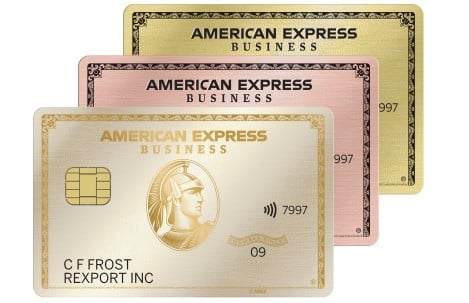Crowdfunding for Business: What You Need to Know
Creating a fundraising campaign on a crowdfunding platform can help you get financing for your business without taking on additional debt.
Many, or all, of the products featured on this page are from our advertising partners who compensate us when you take certain actions on our website or click to take an action on their website. However, this does not influence our evaluations. Our opinions are our own. Here is a list of our partners and here's how we make money.
Crowdfunding allows entrepreneurs to use online platforms to raise money for their small businesses. Interested people can give cash to your cause, often in exchange for rewards or equity in your business after you’ve created your fundraising campaign.
Crowdfunding can be an alternative to a small-business loan. It not only gives business owners a relatively inexpensive way to raise capital, it also helps promote a business product or service and build a base of enthusiastic customers.
How much do you need?
We’ll start with a brief questionnaire to better understand the unique needs of your business.
Once we uncover your personalized matches, our team will consult you on the process moving forward.
How does crowdfunding work for a business?
After picking the crowdfunding platform — and confirming that it can be used for business purposes — you’ll typically complete a business profile on the website. Some crowdfunding companies may want to review your application before they allow you to use their platforms while others let you develop your campaign immediately.
Campaigns typically involve setting a funding goal and a deadline. Some platforms allow you to keep the funds you raise even if you don’t reach your goal, while others don’t. You pay for using crowdfunding platforms typically through a set percentage of the funds you raise, a monthly fee or possible stock in your business.
What are the benefits of crowdfunding?
For small-business owners, the benefits of crowdfunding are twofold: You find funding for your business idea and also get the word out about your product or service.
Crowdfunding allows you to reach a broader group of potential investors. It often starts with you sharing your request for funding with family and friends via social networks.
Unlike a business loan, crowdfunding doesn’t involve raising funds for your business through debt financing. With crowdfunding, there is no loan obligation or a need to pay back the funds.
» MORE: How to get startup funding
What are the different types of crowdfunding?
The two most common types of crowdfunding for small business owners are rewards-based and equity-based.
Rewards-based crowdfunding
In rewards-based crowdfunding, donors receive a product, service or small gift related to the project, with the value depending on the amount donated. For instance, a $5 donation might be rewarded with a handwritten thank you card, while $50 or $100 might bring early access to your company’s product or service.
Rewards-based crowdfunding can be a good option for small business owners looking to get their business off the ground without giving up equity in their business or taking on loan payments.
Here’s how some of the popular rewards-based platforms work:
Fundable
Fundable, a crowdfunding site specifically for small businesses, allows you to choose between rewards- and equity-based funding (more on this below).
When using Fundable as a rewards-based platform, it's all-or-nothing. You set a goal, determine a campaign timeframe and pick rewards. If you don’t meet or surpass your goal, you don’t collect any funds. Fundable doesn’t limit your campaign length but does say the average falls between 60 to 90 days. You pay a monthly fee starting at $179 to use Fundable and for rewards-based campaigns, there’s an additional fee of 3.5% per transaction.
Kickstarter
A business can use Kickstarter to raise funds for a project. You need to decide on a funding goal amount, a campaign duration (between one and 60 days) and rewards for contributors. It’s also an all-or-nothing funding model so you won’t receive any money if you don’t reach your goal. Kickstarter takes a 5% fee, and payment processing fees range between 3%-5% per transaction.
Indiegogo
Indiegogo is similar to the other two platforms: you decide on a target amount, create rewards for contributors and set a campaign deadline (up to 60 days). However, you have the option to keep the funds you’ve raised with Indiegogo even if you don't meet your campaign goal and you can continue to raise funds after your deadline through Indiegogo InDemand. Indiegogo charges a 5% fee on the funds raised for your campaign plus 3% payment processing fees.
Equity-based crowdfunding
In equity-based crowdfunding, donors receive shares in the company; the number is based on the amount of the contribution. Contributors typically choose to invest in companies they believe will be successful in the future, as the success of the company directly influences the return on donors' investments.
This method of crowdfunding can be a good option for small businesses with solid growth plans. You’ll be giving up a portion of ownership in your business, but you won’t be taking on any additional debt.
Some studies have indicated that gender can play a role in the success of a campaign based on funding type with women entrepreneurs doing better with rewards-based crowdfunding and men entrepreneurs doing better with equity-based crowdfunding.
Here’s how some of the popular equity-based platforms work:
Fundable
As we mentioned earlier, in addition to offering rewards-based funding, Fundable also offers equity-based crowdfunding at a monthly fee of $179 to use the platform. Equity fundraising goals can range between $10,000 and $10 million when you use Fundable. There is no deadline for your campaign, but you must renew it every 90 days. Fundable recommends setting smaller goals that are achievable.
Wefunder
Wefunder requires businesses that use its platform to raise a minimum of $50,000 from people they already know before opening up their business campaigns to Wefunder investors. If you don’t meet your goal by the funding deadline, you are offered a one-time extension for up to six months. If you are successful in raising the funds, Wefunder takes 7.9% as a fee and charges $1,000 per year as a management fee.
Republic
Businesses can raise funding through Republic — if they pass the company’s screening process. Republic says that fewer than 5% of applicants are accepted but that 90% or more of those businesses meet their minimum funding goals. Campaigns can run for 60 days. The platform takes a commission of 7% of the cash money raised and 2% of the securities issued, plus payment processing fees up to 2.25%, typically.
Keys to crowdfunding success
Your business stands out in a crowd: A successful crowdfunding campaign relies on your ability to capture the interest of potential donors or investors. This may mean that you have a unique product that fills a consumer void or a strong personal or business story that compels investors to give you a chance.
Investors value your reward: You’ll want to make sure you offer a reward that is compelling enough to capture interest. Rewards can be a product or service, but they can also include personal coaching, classes or exclusive invitations to attend company events.
You have a wide network: Having family, friends and a business network willing to support and promote your cause can amplify your fundraising efforts. Without a strong promotional base, it's harder to reach your financing goals.
Alternatives to crowdfunding
Crowdfunding may work to secure startup financing and generate interest in your product, but it may not be the best solution for long-term business financing. Here are some other ways to fund your business:
Business loans
For small businesses seeking financing, traditional lenders like banks and credit unions are a good starting point. Generally, a bank loan will offer the most competitive rates and terms, but a good credit score and multiple years in business are often required to qualify.
SBA loans
SBA loans, backed by the Small Business Administration, can be an alternative when you don’t qualify for a traditional bank loan. These loans offer low interest rates and long repayment terms, but also typically require good credit and multiple years in business. If you need funding of less than $50,000, an SBA microloan may be a good option. Microloans can have more flexible eligibility requirements than other types of SBA loans.
Online lenders
If you don’t qualify for a bank loan or an SBA loan, small business loans offered by online lenders are another option. Online business loans often have less strict qualification requirements with some online lenders providing startup business loans and business loans for bad credit. However, these loans often have higher interest rates and shorter loan terms.
Business credit cards
Because qualification is typically based on your personal credit instead of your business history, a business credit card can be a good option for startup funding. A business credit card gives you access to a revolving line of credit you can use for current and future business expenses. It can also build your business credit, making you more appealing to future lenders.
Personal loans
If your business history is too short to qualify for a bank loan, consider a personal loan to fund your business. Personal loan amounts may be smaller than those available with business loans, but rates can be lower for well-qualified borrowers, in some cases.
Business grants
Startup business grants are another funding option to consider. This free funding is offered through government agencies, private foundations and small-business incubator programs. Business grants can be designed for specific groups such as business grants for women or business grants for veterans. However, competition for grant funds is strong and you’ll need to set aside a significant amount of time for research and applications.

Jackie Zimmerman, a former NerdWallet writer, contributed to this article.










